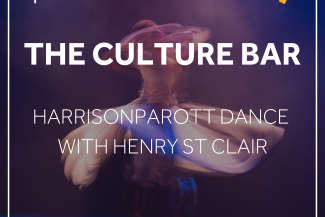In this Speed Pod mini-series episode, we talk to Dance Manager Henry St Clair to tell us more about, and demystify, the world of dance.
Henry St Clair was interviewed by HP’s Lauren O’Brien.
The Culture Bar is a podcast series created by HarrisonParrott focussing on conversations in culture and the arts.
Find us on Spotify, iTunes, Google Podcasts, YouTube, Podbean, Deezer, Stitcher, Pocket Casts and all good podcatcher sites.
Use #theculturebar or follow us on Twitter @_TheCultureBar to keep up with our latest releases
